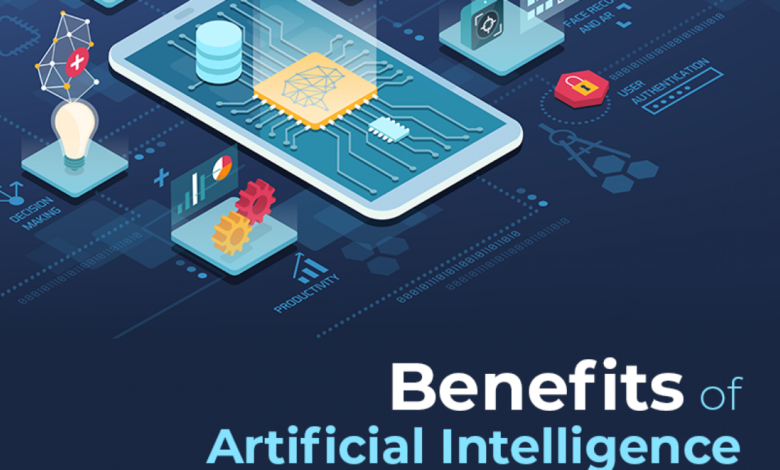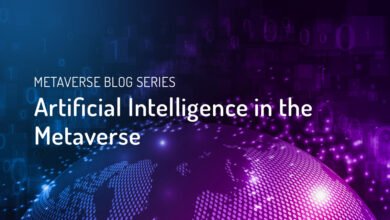10 Best Benefits of Artificial Intelligence for Businesses 2023

Do you know 10 Best Benefits of Artificial Intelligence for Businesses 2023? Artificial Intelligence (AI) has been transforming various industries, and businesses are no exception. As we step into 2023, businesses are increasingly leveraging the power of AI to gain a competitive edge in the market. From automation and efficiency to improved decision-making and personalized customer experiences, the benefits of AI for businesses are manifold. In this article, we will explore the top seven benefits of artificial intelligence for businesses in 2023 and how it can revolutionize the way businesses operate.
The Evolution of Artificial Intelligence in Businesses
Artificial Intelligence has come a long way in the past few years. It has evolved from being a mere concept to a tangible reality that is shaping businesses across industries. With advancements in machine learning, deep learning, and natural language processing, AI has become more sophisticated and capable of performing tasks that were once exclusive to humans.
Businesses have been quick to recognize the potential of AI and have been integrating it into their operations to drive growth and innovation. The use of AI in businesses has moved beyond just automating repetitive tasks to making complex decisions, understanding customer preferences, and predicting market trends. In 2023, we can expect AI to play an even more significant role in shaping the future of businesses.
Read More: Discover The Impact of Artificial Intelligence on the Job Market 2023
Benefits of Artificial Intelligence for Businesses
Automation and Efficiency
One of the primary benefits of AI for businesses is automation and efficiency. AI-powered technologies can automate repetitive tasks, such as data entry, inventory management, and customer support, freeing up human resources to focus on more strategic and creative tasks. Automation not only speeds up processes but also reduces the risk of errors, resulting in improved operational efficiency and cost savings.
Enhanced Decision Making
Another significant advantage of AI in businesses is improved decision making. AI algorithms can analyze vast amounts of data in real-time, identify patterns, and generate insights that can inform decision-making processes. From predicting customer behavior to optimizing supply chain operations, AI can provide businesses with valuable data-driven insights, helping them make informed decisions and stay ahead of the competition.
Personalized Customer Experience
In today’s competitive business landscape, providing a personalized customer experience is crucial for success. AI can help businesses deliver personalized experiences by analyzing customer data, understanding their preferences, and tailoring products, services, and offers accordingly. AI-powered chatbots and virtual assistants can also provide personalized customer support, enhancing customer satisfaction and loyalty.
Improved Cybersecurity
With the increasing threat of cyber attacks, businesses need robust cybersecurity measures to protect their sensitive data and intellectual property. AI can play a crucial role in strengthening cybersecurity defenses by continuously monitoring and analyzing data for potential threats, detecting anomalies, and taking proactive measures to mitigate risks. AI-powered security systems can learn from past security incidents, adapt to new threats, and provide real-time response, ensuring enhanced cybersecurity for businesses in 2023.
Cost Savings
AI can help businesses achieve significant cost savings by automating tasks, optimizing processes, and reducing operational inefficiencies. By automating repetitive tasks, businesses can save time and resources, leading to cost reductions. AI-powered predictive analytics can also help optimize supply chain operations, inventory management, and resource allocation, resulting in cost savings and improved profitability.
Enhanced Productivity
AI technologies can significantly enhance productivity in businesses. By automating mundane tasks, employees can focus on higher-value tasks that require creativity, critical thinking, and decision-making skills. AI-powered tools and platforms can also streamline workflows, improve collaboration, and optimize resource allocation, leading to increased productivity and overall business performance.
Competitive Advantage
In today’s competitive business landscape, gaining a competitive edge is crucial for success. AI can provide businesses with a competitive advantage by offering insights, automation, and personalization that can differentiate them from competitors. AI-powered customer analytics, predictive modeling, and market trend analysis can help businesses stay ahead of the competition and make strategic decisions to capture market share.
Challenges and Risks of Artificial Intelligence in Businesses

While the benefits of AI for businesses are substantial, there are also challenges and risks that need to be considered.
Ethical Concerns
One of the significant challenges of AI in businesses is ethical concerns. There are concerns related to bias in AI algorithms, data privacy and security, and the ethical implications of using AI in decision-making processes. Businesses need to ensure that AI systems are transparent, accountable, and adhere to ethical standards to avoid any negative impact on society and business reputation.
Legal and Regulatory Challenges
The rapid adoption of AI in businesses has outpaced the development of regulatory frameworks, leading to legal and regulatory challenges. Businesses need to navigate complex legal and regulatory landscapes related to data privacy, intellectual property, liability, and compliance. Ensuring compliance with relevant laws and regulations is crucial to mitigate legal risks associated with AI implementation.
Data Privacy and Security Risks
AI relies on vast amounts of data for training and decision-making, which raises concerns about data privacy and security. Businesses need to ensure that data used for AI purposes is collected, stored, and processed in compliance with data privacy regulations. Robust security measures, such as encryption and access controls, should be in place to protect data from unauthorized access or breaches.
Strategies for Successful Implementation of Artificial Intelligence in Businesses

To harness the full potential of AI and ensure successful implementation in businesses, the following strategies can be adopted:
Define Clear Objectives
Businesses need to define clear objectives and outcomes they want to achieve with AI implementation. Setting measurable goals and aligning AI initiatives with overall business strategies will ensure that AI is integrated into business operations effectively.
Develop a Data-Driven Culture
Data is the fuel that powers AI, and businesses need to develop a data-driven culture to ensure successful AI implementation. This involves collecting, storing, and managing data in a structured and organized manner, and using data analytics to drive decision-making.
Ensure Ethical and Transparent AI Practices
Businesses should prioritize ethical and transparent AI practices. This involves ensuring that AI algorithms are fair, transparent, and do not perpetuate bias. Businesses should also establish clear guidelines for the ethical use of AI in decision-making processes, and regularly assess and monitor AI systems for compliance with ethical standards.
Address Data Privacy and Security Concerns
Data privacy and security should be given utmost importance in AI implementation. Businesses need to have robust data privacy and security measures in place to protect sensitive data used for AI purposes. Compliance with data privacy regulations, such as GDPR, should be ensured to mitigate data privacy risks.
Continuous Monitoring and Improvement
AI is constantly evolving, and businesses need to continuously monitor and improve their AI systems to ensure optimal performance. Regular evaluations, feedback loops, and updates to AI models should be implemented to enhance accuracy, efficiency, and effectiveness of AI solutions.
Collaboration between Humans and AI
Successful AI implementation in businesses involves a collaborative approach between humans and AI technologies. Businesses should view AI as a tool to augment human capabilities, rather than as a replacement for human workers. Encouraging collaboration between humans and AI can lead to more innovative and effective solutions.
Read More: Artificial Intelligence for Attorneys Is Coming
Conclusion
Artificial Intelligence has immense potential to revolutionize businesses in 2023 and beyond. From improved decision-making and enhanced customer experiences to increased productivity and cost savings, the benefits of AI are significant. However, businesses need to address challenges related to ethics, legal and regulatory compliance, data privacy, and security to ensure successful implementation of AI. By adopting strategic approaches, businesses can harness the full potential of AI and gain a competitive advantage in the dynamic business landscape of 2023.
FAQs
Q: What are the key benefits of Artificial Intelligence for businesses in 2023?
A: The key benefits of Artificial Intelligence for businesses in 2023 include improved decision-making, enhanced customer experiences, increased productivity, cost savings, enhanced cybersecurity, and competitive advantage.
Q: What are the challenges of implementing Artificial Intelligence in businesses?
A: The challenges of implementing Artificial Intelligence in businesses include ethical concerns, legal and regulatory challenges, data privacy and security risks, and the need for skilled talent and expertise.
Q: How can businesses ensure successful implementation of Artificial Intelligence?
A: Businesses can ensure successful implementation of Artificial Intelligence by defining clear objectives, developing a data-driven culture, investing in talent and skills, ensuring ethical and transparent AI practices, addressing data privacy and security concerns, continuous monitoring and improvement, and promoting collaboration between humans and AI.
Q: What are the risks of using Artificial Intelligence in businesses?
A: The risks of using Artificial Intelligence in businesses include potential bias in AI algorithms, legal and regulatory compliance challenges, data privacy and security risks, and the need for continuous monitoring and improvement of AI systems.
Q: How can businesses gain a competitive advantage with Artificial Intelligence?
A: Businesses can gain a competitive advantage with Artificial Intelligence by utilizing AI-powered insights, automation, and personalization to differentiate themselves from competitors, staying ahead of market trends, and making strategic decisions based on AI-driven analytics.











